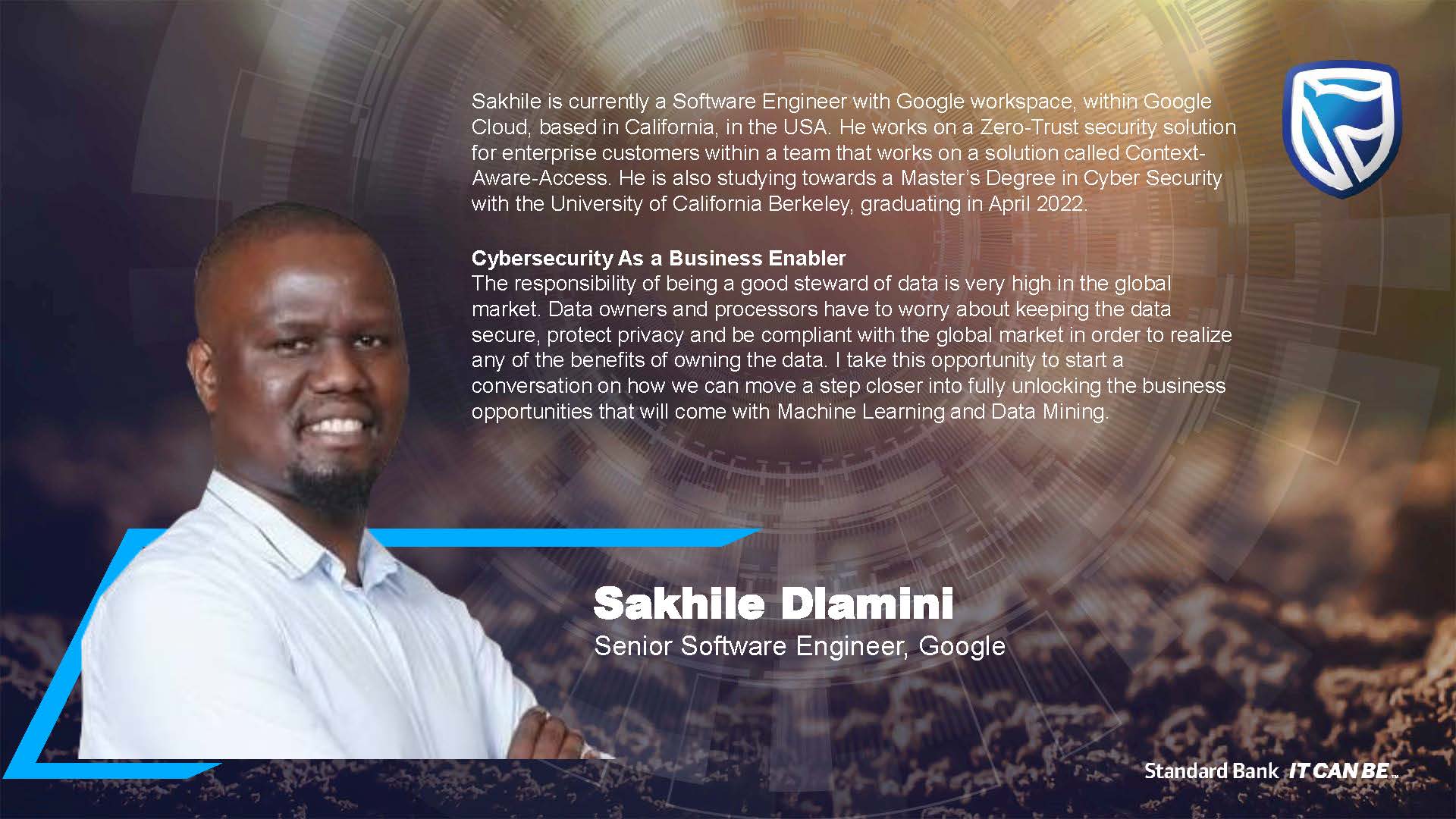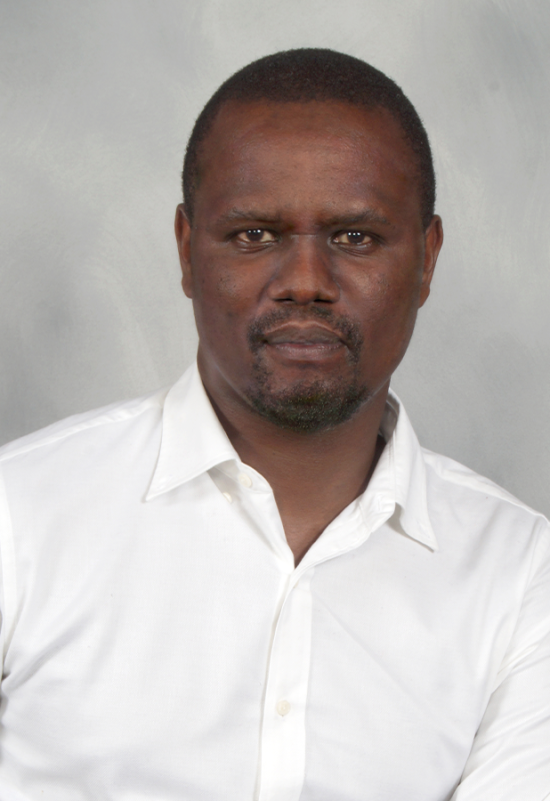Sakhile Dlamini is a second-year student in the Master of Information and Cybersecurity program. He is currently a senior software engineer at Google Workspace. Prior to the I School, Sakhile earned a bachelor of arts in Computer Science and Mathematics from Colorado College in Colorado Springs, Colorado.
Tell us about your journey to the MICS program
I am from Eswatini, a small country right next to South Africa. My career in cybersecurity started about three years ago when I joined Google Workspace’s account security team. Prior to that, I had been working as a software engineer on Google+, the social network for Google, and I have learned a lot along the way.
I wrote my first computer program in 2008 when I enrolled in a computer science program at Colorado College. Prior to that, I had no idea what programming was, with only about two years of experience just using a computer.
Why did you choose the MICS program?
For the last five years, I have had a desire to start my own business in cybersecurity. I started building my experience towards this goal, which is the reason I joined Google Workspace’s account security team. To further build credibility in the field, I started looking for graduate school programs. I briefly enrolled in the Stanford cybersecurity certificate program and realized that instead, I wanted to pursue a master’s. There was a path for me to extend the graduate certificate program at Stanford into a master’s, but after comparing few programs in the country I decided that I preferred the Master’s in Information and Cybersecurity at UC Berkeley.
The Berkeley program stood out as the program that was designed well to fit my needs. First, it was time-boxed so that I can finish it within a reasonable amount of time, and it was designed with an online experience. Above all, MICS has a good balance between technical knowledge and leadership skills in cybersecurity. Given that I already had technical work experience, I did not think I would benefit from a program that was strictly technical.
How are you leveraging your MICS experience?
On April 11, 2021, I had the great privilege to share the knowledge I have learned from the UC Berkeley program at the Data Conference for Standard Bank Africa, the largest bank in Africa. This was in an annual conference for the bank across the continent, where they invite their leaders to come together to communicate their strategy.

Standard Bank has a mission to drive value for customers by making meaningful use of data analytics. A lot of companies have followed this path before, including Equifax in the United States. The perspective I wanted to share was how to unlock the business potential by being a good steward of the data. Specifically, I pulled a lot of the material from my Cybersecurity Risk management class, though we were only halfway done with the class. This really speaks to the usefulness of class content, where one is able to apply the knowledge from classes right away.
At this conference, I wanted to highlight the importance of doing cyber well. Often cybersecurity is seen as a cost center for enterprises, but contrary to that belief, cybersecurity can unlock even bigger business opportunities for companies. There are multiple reasons for this, first, if customers believe that the company is a good steward of their data, then they will be more willing to share their data with the company. Second, a company that demonstrates strong security and privacy processes is able to do business across international borders that have stronger cybersecurity requirements. A good example of this is doing business with European countries that require GDPR compliance.
What aspect of the cybersecurity world intrigues you the most and why?
I am more of a generalist. So far I like all my cybersecurity classes at UC Berkeley, and it’s always difficult when it’s time to choose a new set of classes to take. I have enjoyed the technical classes, including cryptography, software security, network security, and privacy engineering. I have also enjoyed the soft skill-focused classes, such as cybersecurity in context and risk management. I don’t necessarily think I would like to strictly focus on only one of them. I consider cybersecurity to be more like a puzzle and art, I need all the pieces to find the best solution to problems.
What has been the most surprising thing about your experience at the I School so far?
I really like the community at I School, it really feels like a family. I have formed very strong relationships with folks across cohorts, including alumni. The I School community is very intentional about helping each other out and growing together, within the class setting and outside. The group has a virtual coffee meet-up every Saturday to discuss any topic in cybersecurity, including tips on setting up your home network, crypto-currencies, and the life of a Pen-tester. The school has very high-quality teachers, experienced and knowledgeable about cybersecurity; they love what they do and they enjoy sharing their experiences with students.
What do you aspire to do in the future?
I have always had a goal to bring my knowledge and skills back to Africa. I hope to build a business in my home continent and improve the lives of my people. The opportunity to speak at the Standard Bank Africa conference was a step closer to this goal.











